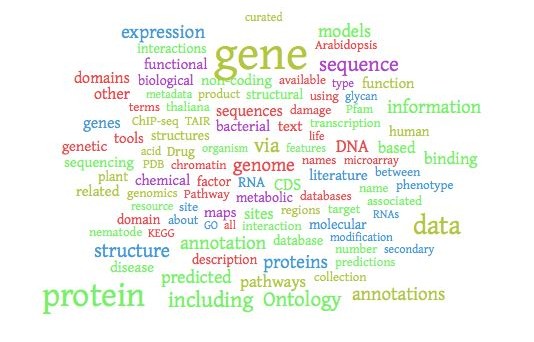
Data science is everywhere, and biology is no exception. It’s not just Big Data that’s taking centre-stage, but ‘small’ data too. Data to support the findings in a paper. Data that may go into the supplementary materials section of a paper. Data that may end up stored in a field-specific or institutional repository.
What format do you put your data in, and in which databases should you deposit your data? The new Minimum Standards of Reporting Checklist by BioMed Central (BMC) helps answer these questions.
Currently highlighted for authors submitting research manuscripts to four BioMed Central journals – BMC Biology, BMC Neuroscience, Genome Biology and GigaScience, this checklist is a handy and useful guide for submission to any journal within or indeed without the BMC stable.
Only looking at the checklist when you’ve finished your work and are ready to publish, however, is a little too late. Researchers should prepare a data management strategy alongside their laboratory schedule.
It’s just good planning. It’s useful and saves time (and tears), if you plan ahead and think about these things before you start generating the data. This is where the checklist, and BioSharing, the information resource I work on, can help
What is BioSharing?
BioSharing is a curated web-based searchable catalogue of linked information on content standards, databases and data policies in the life sciences. Our goal is to assist researchers, developers, curators, funders, journals and librarians who lack the support and guidance to navigate and select the right standard or format for their data, and to identify the databases in which they can deposit it.
We’ve collaborated with BioMed Central to create a Collection of databases and data standards that correspond to those mentioned in the new BMC Reporting Checklist. This Collection, collates all the databases and standards and their associated metadata, allowing you to drill down into the data and find the data formats, related standards and databases you should implement and submit your work to, along with further information, such as whether the database is open access, or allows programmatic access.
The rise of big data
Science has always been about information. Now there seems to be more of it than ever. With the advent of genomics, and the rise of big data, there has been a proliferation of databases, and a concomitant explosion in data standards and formats.
Navigating this sea of standards, to ensure your data is accepted, understood and reproducible, is becoming critical to the longevity of science. The publishing of the BMC Minimum Standards of Reporting Checklist goes a long way towards helping researchers ensure the legacy of their data, making it more accessible, understandable, and ultimately, more useful.
To discover more ways to format your data, and where best to deposit it, check out our website.
Comments